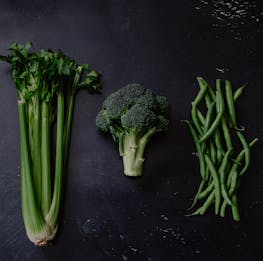The China Study Summary
The Most Comprehensive Study of Nutrition Ever Conducted and the Startling Implications for Diet, Weight Loss, and Long-Term Health
Are you interested in how diet and lifestyle affect your health?
Based on groundbreaking research, The China Study unpacks the connection between animal-based products and alarming health risks. The findings support the move towards a whole-food plant-based diet, and show that fruit, vegetables, nuts, and grains provide all the nutritional benefits we need, to feel good and stay healthy.
Colin Campbell, a nutritional biochemistry professor, and Thomas Campbell, a family physician, spent years studying nutritional science. This father and son team, challenge what we know about diet. They also help us understand how eating certain foods can either be the best or worst thing we do regarding our health.
The cornerstone of healthcare should be around diet and lifestyle, instead of pills and procedures. If we look at the overall health of Americans, it has declined significantly. Furthermore, although Americans spend more on healthcare than any other country globally, their population is in worse shape than ever. The country's expenditure on healthcare has risen by almost 300% in the past 40 years. Despite this, Americans struggle with obesity, diabetes, cancer, and heart disease, at alarmingly high rates.
This summary briefly takes us through the issues around diet and wellness. Many illnesses are avoidable if healthy diet and lifestyle choices are followed. While an increasing number of doctors are espousing the value of nutrition and lifestyle, surgery and pills are still favored over correcting nutrition, and holistic treatments. Relying on drugs to solve our health problems is dangerous. Roughly 7% of people, who take prescribed medication, suffer severe side-effects, some of which can be fatal. Thinking that medical intervention will save us is problematic. The authors point out that our overreliance on medicine and pills is costly, and can be harmful to our health.
It's Tempting to Turn to the Latest Diet Fad or Supplement to Support Our Health
The problem here, is that although a diet can prevent, and even reverse some of our health problems, there's a lot of confusion around nutrition. It's easy to feel overwhelmed about what to eat, and which supplements to take. Fad diets may tell us to cut the carbs, and increase the animal protein, but all too often, the science behind such diets is reductionist. They promise oversimplified solutions to complex health problems, by cutting out an entire food group, causing more harm to our health.
Supplementation is also tricky, because the pharmaceutical industry is poorly regulated. Besides, supplements aren't always effective, and often have side effects. Furthermore, the body works in complex ways, so it isn't easy, or always clear where the benefits of taking supplements originate. The authors believe that eating whole food is the best path to follow. Based on the results from the China Study, which is one of the most comprehensive studies done in nutritional science, they explain the benefits of a whole food diet. Whole food diets can prevent, and even reverse disease, and consuming animal protein like meat and dairy, can harm our health. When it comes to prevention, a healthy plant-based diet is key. But perhaps you're concerned about not getting enough protein?
We Don't Need as Much Protein as We Think
Protein is a crucial macronutrient - it helps to build muscle, and keeps our cells functioning optimally. A 19th-century study, conducted by a German nutritionist Carl Voit, gave an early indication, that we don't need to eat more than 48g of protein daily. Animal protein can be harmful to our health, and there are alternative forms that we can source. Eating more plant protein is recommended because the type of protein that we consume, is important to overall health and well-being.
To understand this, a bit of science might be helpful. Protein is a chemical made up of a chain of hundreds of amino acids. Imagine it as a string of colored beads, each color representing a different amino acid. Our bodies make many of these beads, but there are eight they can't produce. These are called essential amino acids, and we need to obtain these from the food we eat. We equate the quality of protein sources to foods that can provide us with all eight of these amino acids. The best quality comes from animal foods, like meat, milk, and eggs. Plant protein lacks the same so-called quality, because a single plant source generally lacks all eight essential amino acids. But - and this is a massive BUT - the term quality is misleading. Quality doesn't equate with healthy. Plant proteins might not have all essential amino acids, but they're still healthier than animal proteins. And if we consume a variety of plants and whole grains, we can get all the essential amino acids that we need, without the adverse health risks that come from animal-based proteins.
Animal Products Can Be Harmful to Our Health
Animal products, such as meat and dairy, can have adverse health effects because of their carcinogenic properties. Two studies from the 1960s, made the authors question the common assumption, that animal protein makes us strong and healthy. In the 1960s, researchers in India, exposed two groups of rats to a toxic mold, called aflatoxin (known to cause liver cancer). After exposure, the rats were separated into two groups. One group was fed a high protein diet, and the other a low protein diet. The rats who were fed a high protein diet, developed liver cancer, compared to the second group, who all stayed healthy, despite being exposed to the same amount of mold. This study was thought-provoking, because it correlated with another study that Collin Campbell was involved in, at around the same time. Early on in his career, he spent time in the Philippines, where he worked on a project that focused on malnourished children. He was addressing the issue of childhood malnutrition in the Philippines. What they found was that children accidentally exposed to aflatoxins, those who ate a high-protein diet, were the most likely to develop liver cancer. These findings contradicted Western medicine's assumptions at that stage, that protein prevented diseases like cancer, and made Campbell question the role of animal products in cancer development.
The Groundbreaking China Study
The China Study helped researchers form connections between diet and disease. If evidence existed that animal protein, is linked to cancer development in rats, could these findings be applied to humans? Campbell wanted to find out, so this became one of the primary aims of the China Study. The study was conducted in the early 1980s, and was one of the most comprehensive public health studies ever undertaken. A group of researchers from Oxford and Cornell University, including Colin Campbell, partnered with the Chinese government to collect 20 years' worth of data. The team traveled to China, in order to explore how the environment and nutrition affected overall health. One objective was to investigate the link between the consumption of animal products, and diseases such as heart disease and cancer.
You might be wondering why China was selected for this study?
There were three reasons. Firstly, unlike other studies, the China Study was the first to examine the effects of dietary practices of people outside American and other Western societies. This gave researchers a chance to understand the impact of differences in diet and lifestyle between Western and rural Eastern practices. Secondly, studying people in rural China, allowed the researchers to rule out genetics as a significant disease development factor. Compared to other populations, rural China has a genetically homogenous society. 87% of the Chinese in these rural areas, are from the same ethnic group, called the Han. Genetically speaking, this means this group would have more or less the same chance of developing any given illness. This meant that genetic differences would not distort the study's results. In addition to this, 90-94% of the adult sample, was still living in the county where they were born. This lack of migration meant that the genes in the population had remained relatively similar. Thirdly, disease rates vary across China's regions. For example, some parts have cancer rates that are 100 times that of other areas. Even though the Chinese share most of their genes, they don't all have the same cancer risk. For research purposes, this suggests that diet and lifestyle might be more important than genetic predisposition, and that diseases like cancer might be preventable.
The researchers collected and analyzed large data sets to determine how different diets might correlate with certain diseases. The researchers visited over sixty regions in China. They collected blood and urine samples, as well as getting 6500 adults to complete questionnaires. They evaluated what families ate, visited marketplaces to analyze food samples, and measured 367 variables over the 20 years, accumulating a wealth of data. Upon completing the study, they had over 8000 statistically significant associations between diet, lifestyle, and disease variables.
Several Findings That Informed Their View of America's Health Problems
Let's have a brief look at some of the findings from the China Study. Over their 20 year study, the researchers had access to China's mortality rates, relating to more than 40 diseases. The pattern that emerged, indicated two clusters of diseases; diseases of affluence, and those of poverty. Diseases of affluence, were linked to diets high in protein and fat. These included heart disease, cancer, and diabetes. Diseases of poverty were found in rural and developing areas, and included parasitic complaints, pneumonia, and tuberculosis. They found that people in China's rural areas, ate less fat, less animal protein, and less protein overall than Americans. They also consumed much more fiber and iron. Dr. Campbell estimated that protein makes up about 15% of American diets, with 80% of this protein coming from animal sources. Rural Chinese statistics show, that only 10% of calories come from protein, and only 10% of that protein came from animal protein. Although they consumed more calories than Americans, their disease risk and weight were lower. This highlights the dangers of consuming animal products, and the benefits of consuming plant-based foods.
Diseases of affluence begin to replace diseases of poverty, when a population accumulates wealth, and then changes their lifestyles, diets, and sanitation systems. Their diets and lifestyle start to resemble that of westerners. The results also showed a connection between cancer, and diets high in animal protein. The authors explain: 'A pattern was beginning to emerge: nutrients from animal-based foods, increased tumor development, while nutrients from plant-based foods, decreased tumor development.'
To understand the connection between animal protein and cancer, it's helpful to unpack a little about how cancer develops. Carcinogens are cancer-causing agents in the body. We mentioned one of them - aflatoxin - a little earlier. Carcinogens like aflatoxin, turn normal cells into cancerous cells. But enzymes are necessary for these healthy cells to turn cancerous. Enzymes are proteins that speed up chemical reactions. The China Study revealed that, low protein diets, which consist of 5% or less of protein, decrease enzyme activity, and prevent dangerous carcinogens from forming. Even if protein consumption increases to 20% of our diet, the cancer danger increases when animal- based, as opposed to plant-based protein is consumed. The researchers also looked at casein, which makes up 87% of cow milk protein. They found that high doses of casein, could activate cancer genes. But low or negligible amounts, actually turn them off. Furthermore, high dairy consumption increased the probability of developing prostate cancer. Diets high in animal protein and saturated fat, were also associated with an increased risk of breast cancer. Diets low in fiber (in other words, low in fruits, wholegrain, and vegetables) were linked to higher rates of colon and rectal cancer. The study recommends that we reduce animal protein consumption, and eat a variety of fruits and vegetables. Let's explore what plants we should eat to get all the protein our bodies need.
The Importance of Plant Foods
This study isn't just about what animal foods contain; it's also about what they lack. Plant foods are rich in vitamins, minerals, antioxidants, fiber, and protein. Plant foods also do more than ward off cancer; they prevent heart disease, autoimmune conditions, diabetes, bone degeneration, and brain disease. Plants are also high in antioxidants and fiber. Antioxidants are nutrients that bind to disease-triggering free radicals, and eliminate them from our bodies. Good sources of antioxidants are fruits and vegetables, as well as olive oil and cocoa. Fiber is critical for proper digestion, and a high-fiber diet correlates to reduced occurrences of colon and rectal cancer and lower cholesterol levels. Strawberries, broccoli, papaya, and peas, are high in Vitamin C, which boosts immunity. Plant foods that are high in protein include lentils, nuts, grains, and seeds.
In Conclusion
Transitioning to a plant-based diet may seem daunting. The authors recommend going 'cold turkey' on animal products for a month. The reason for this is you're more likely to notice the benefits more acutely. Then why not try eating as many whole foods as you can? A plant-based diet isn't about going hungry, and there are so many ways that you can be creative with the abundance of ingredients. Try restaurants that offer whole-food plant-based options, and search the internet for recipes, in order to discover just how delicious plant-based food can be.
And, regarding nutrients, it's important to note that they often work together, to achieve overall health. No single nutrient is responsible for good health. The way food chemicals work together in the body, is highly complex, but it's the combination of all the chemicals working together that matters. That's why whole-food plant-based diets are recommended, because they give us all the protein and nutritional benefits that we need. This ensures we get enough antioxidants to fight free radicals, and all the amino acids to keep us strong and healthy.
What's more, focus on getting nutrients from whole-food, rather than supplements. The exceptions here are Vitamin B12 and Vitamin D. Our Vitamin B12 levels seem to benefit from animal products, but supplementing B12 seems to resolve any deficiencies. The sun increases our Vitamin D levels, so if you live in a country that doesn't get sufficient sunlight, a Vitamin D supplement might be a good idea.
So, when it comes to our diets, why not look to the China Study for inspiration?




